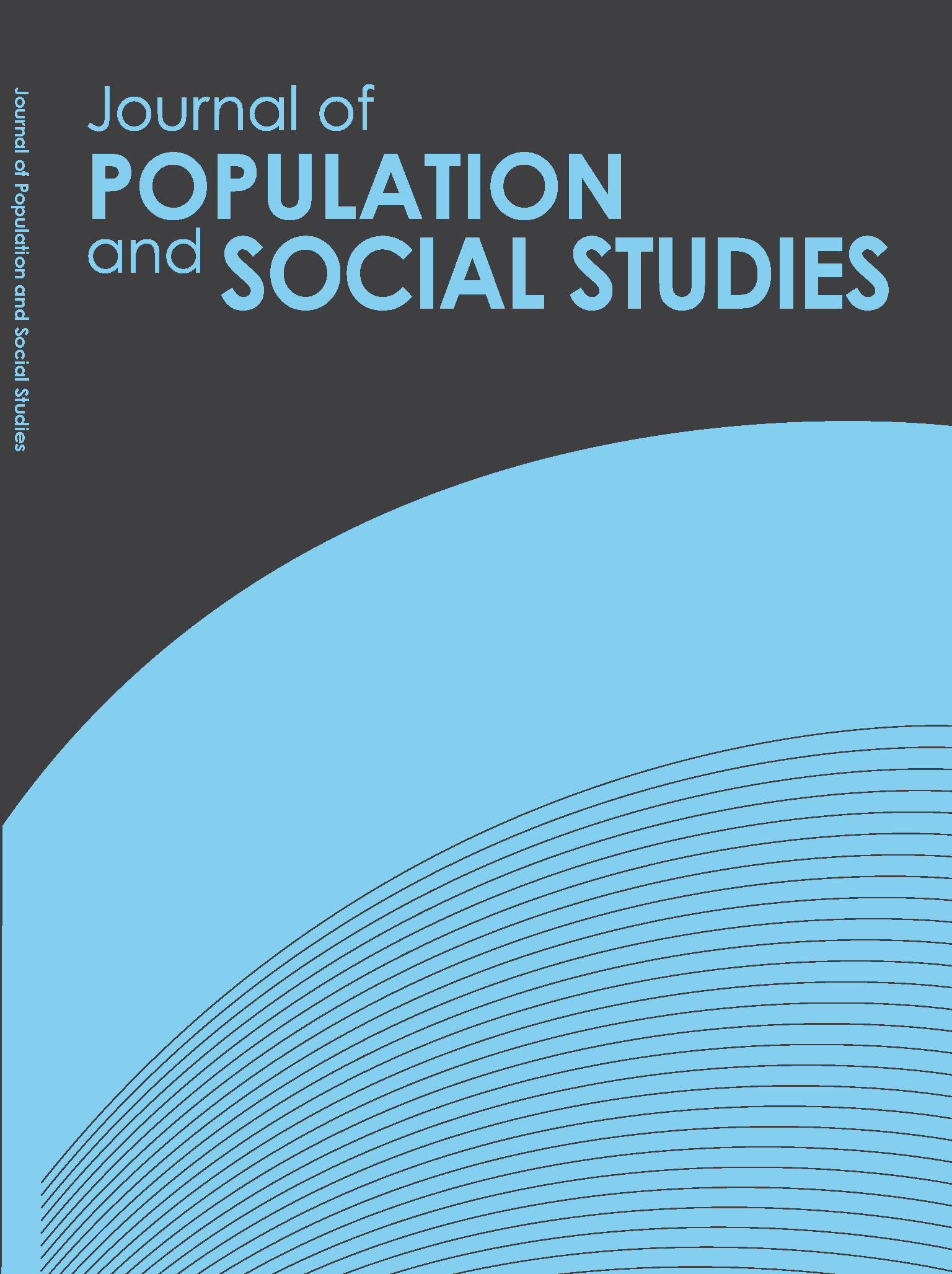Improvement of the Quality of Life of the Elderly through Individual Empowerment, Family Care and Community Support: The Case of Phra Nakhon Si Ayutthaya Province, Thailand
Main Article Content
Abstract
This research has two objectives: to assess the quality of life of the elderly,
and to identify factors affecting the quality of life of the elderly. As part of the study interviews were conducted with 415 elderly identified through multi-stage sampling. An adapted form of WHOQOL-BREF-THAI questionnaire was used to assess the quality of life in 5 key domains: physical, psychological, environmental, social relation, and satisfaction domain. Multiple regression analysis showed that individual, family and community factors could explain 33.8, 9.7, 13.2, 17.9, and 9.3 percent of the variance of the five domains respectively. Twelve variables (sex, age, income, knowledge of health, health practice, self-reliance, care and attention, role taking, residential environment, activity in community, physical environment and information) were independently and significantly associated with at least one domain of the quality
of life domain.
Our results provide important information for policy recommendation, which
can be implemented before the elderly reach the age of retirement. It will also allow to prepare the labor-force age population in terms of financial and human resource building.
and to identify factors affecting the quality of life of the elderly. As part of the study interviews were conducted with 415 elderly identified through multi-stage sampling. An adapted form of WHOQOL-BREF-THAI questionnaire was used to assess the quality of life in 5 key domains: physical, psychological, environmental, social relation, and satisfaction domain. Multiple regression analysis showed that individual, family and community factors could explain 33.8, 9.7, 13.2, 17.9, and 9.3 percent of the variance of the five domains respectively. Twelve variables (sex, age, income, knowledge of health, health practice, self-reliance, care and attention, role taking, residential environment, activity in community, physical environment and information) were independently and significantly associated with at least one domain of the quality
of life domain.
Our results provide important information for policy recommendation, which
can be implemented before the elderly reach the age of retirement. It will also allow to prepare the labor-force age population in terms of financial and human resource building.
Article Details
How to Cite
Paluangrit, S., Griensven, F. van, & Wongboonsin, K. (2007). Improvement of the Quality of Life of the Elderly through Individual Empowerment, Family Care and Community Support: The Case of Phra Nakhon Si Ayutthaya Province, Thailand. Journal of Population and Social Studies [JPSS], 14(2), 133–152. retrieved from https://so03.tci-thaijo.org/index.php/jpss/article/view/84601
Section
Research Articles


